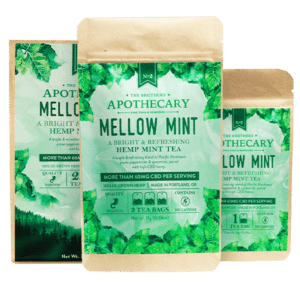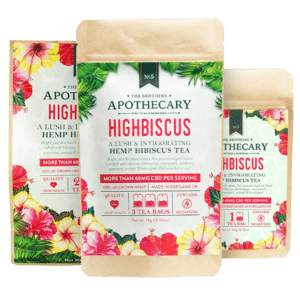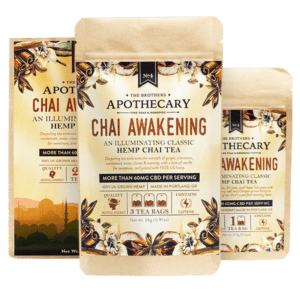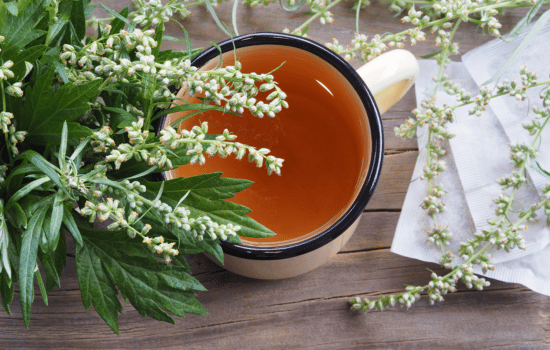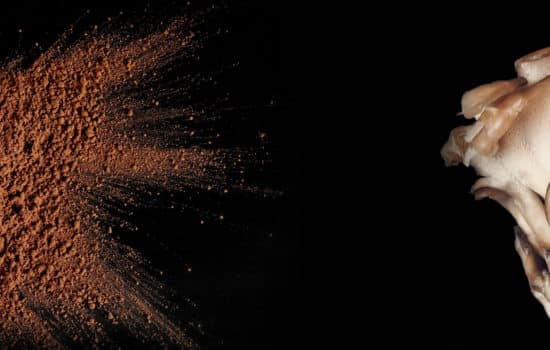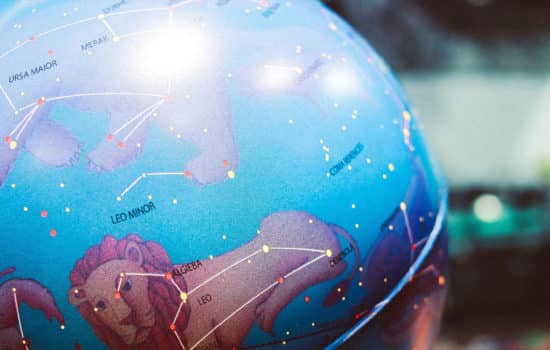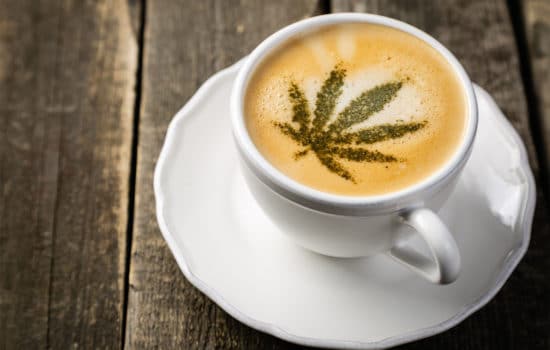You probably know about the munchies associated with cannabis use. So, it’s natural then to question if CBD–one of the most active cannabinoids in the cannabis and hemp plant – will make you hungry, too.
Wondering if a few drops of CBD oil will have you rummaging through the fridge in a few hours? Read on to learn more about how CBD can affect appetite and hunger.
Can CBD Increase Hunger?
The short answer is: no, CBD will not increase hunger, at least not the way that THC does.
While both CBD and THC are phytocannabinoids found in the many varieties of the Cannabis sativa plant, their molecular structural differences cause them to work differently within the body.
When CBD enters the body, it interacts with the endocannabinoid system (ECS). The ECS is a complex messaging system that uses endocannabinoids and cannabinoid receptors (CB receptors) to help regulate a number of body functions such as sleep, mood, and appetite.
Certain cannabinoids, including naturally produced endocannabinoids, can bind with CB receptors to send signals throughout the nervous system and trigger beneficial biological functions.
CBD, however, does not bind directly with cannabinoid receptors. Instead, CBD can help keep enzymes from breaking down beneficial endocannabinoids as quickly, prolonging their soothing effects.
Without binding directly to cannabinoid receptors, CBD does not trigger hunger the way that THC does.
But, there is a little more to it than that. While CBD doesn’t directly increase hunger, it can still have an effect on appetite.
How Does CBD Impact Appetite?
Because CBD can help the ECS maintain homeostasis within the body by prolonging the effects of endocannabinoids, CBD may indirectly impact appetite.
You see, CBD can work within the ECS to help soothe physical discomfort, lower stress levels, and even ease nausea.
So, if nervous thoughts have your stomach in knots and are standing in the way of a good meal, CBD can indirectly increase your appetite by helping calm the mind and reduce stress.
Similarly, if nausea or physical discomfort are making it difficult to eat, CBD can help you regain your appetite by easing these discomforts.
Does CBD Cause the Munchies?
CBD is considered an cannabinoid antagonist, meaning that it does not activate cb receptors. While Cb1 receptors in the brain can send out hunger signals when activated, CBD won’t activate these receptors, so there’ll be no CBD-induced munchies!
And while CBD can legally include up to 0.3% THC content, this is too small an amount to increase hunger in any meaningful way.
Will CBD Cause Weight Gain?
While many people are curious about any correlation between CBD use and weight, CBD is not linked to weight gain.
Can CBD Contribute to Weight Loss?
While more research is needed, some studies suggest that CBD’s impact on metabolism may contribute to weight loss.
How Does CBD Impact Metabolism?
Metabolism is the chemical reaction responsible for converting food into energy and–like many body functions–can be affected by the endocannabinoid system.
Metabolism takes place in the liver, endocrine pancreas, and muscles; all of which house cannabinoid receptors.
When endocannabinoids bind with these receptors where metabolism takes place, they are thought to help with the metabolism process. And since CBD can engage with these endocannabinoids, they can provide further support.
Some studies suggest that CBD may help break down fats by stimulating certain genes and proteins, while also working with endocannabinoids to help convert fats into energy.
The antioxidants in CBD can also support metabolic function, as can CBD’s effect on sleep.
CBD can support the ECS in naturally regulating your sleep cycle by promoting relaxation and providing relief from tension and physical discomfort. There is a clear link between getting enough quality sleep and metabolic function, meaning CBD can indirectly boost metabolism this way as well.
How Does CBD Support Digestive Health?
You may not be surprised to learn that the endocannabinoid system can also help regulate digestive health. CB receptors can be found throughout the digestive tract.
When endocannabinoids bind to these receptors, they can help stimulate appetite and support the movement of stomach muscles during food intake. This process assists with the absorption of nutrients and keeps the digestive tract healthy.
CBD can also support the ECS in sending messages between the brain and stomach, which can be useful in soothing any physical effects of stress that we may experience in the gut, such as nausea or lack of appetite.
CBD vs. THC: Which One Causes More Hunger?
There is no competition: THC causes more hunger than CBD.
While CBD may indirectly increase appetite, THC directly impacts appetite by causing the release of hunger-related hormones.
Does THC Contribute to Weight Gain?
Despite widespread assumptions that THC and the subsequent munchies may contribute to weight gain, there has been little evidence from clinical studies that this is the case.
While research on the correlation between THC and weight gain is quite limited, a number of existing studies have found little to no evidence of THC use causing weight gain.
Why Does THC Cause the Munchies?
Alright, so we know that THC causes the munchies, but why?
Basically, when THC binds with CB1 receptors in the brain, the receptors can send out signals that impact hormone production.
THC can alter the production of the appetite hormones ghrelin, PYY, and leptin.
By lowering levels of PYY (a hormone that suppresses hunger) while also increasing levels of ghrelin (a hormone that can increase feelings of hunger), THC intake creates the perfect recipe for the munchies.
How Long Does CBD Take To Support Appetite?
CBD’s effects that can help stimulate appetite typically kick in within 20 minutes to an hour, depending on the method of intake. CBD oils taken under the tongue can start working within 20 to 30 minutes, while edibles may take an hour or two to kick in.
How Long Do the Effects of CBD Last?
The effects of CBD typically last for anywhere between two to eight hours, depending on product potency and dose taken.
Since CBD can build up in the body over time, it can provide longer-lasting support when taken consistently. This is why it is recommended to take CBD consistently every day to support your wellbeing most effectively!
Will CBD Cause Bloating?
CBD doesn’t cause bloating. However, if you are sensitive to oils, you may respond to the carrier oils used in CBD oils–usually coconut or hemp oil. If that’s the case, you may prefer using a less oil-based CBD product, such as a CBD smoking blend or CBD tea.
Which Type of CBD Is Best for Appetite and Digestive Support?
Any type of consumable CBD product can aid in digestive support as the cannabinoids are absorbed into the bloodstream.
Here at The Brothers Apothecary, we’ve crafted a range of CBD oils, teas, capsules, and gummies with digestive support and gut health in mind.
By pairing CBD with other gentle and stomach-soothing herbs and plant compounds such as ginger, licorice root, and peppermint, these CBD products can further support your digestive health.
The Bottom Line
Without causing the munchies, CBD can still help promote relaxation, ease discomfort, and support digestive health.
Ready to enjoy the soothing benefits of CBD yourself? Check out our wide array of products at The Brothers Apothecary shop!
Sources:
Cannabinoid Agonists for Nausea and Vomiting | Gastroenterology Nursing
Cannabidiol promotes browning in 3T3-L1 adipocytes | SpringerLink
The Metabolic Consequences of Sleep Deprivation | Sleep Medicine Review
Marijuana and Body Weight | Innovations in Clinical Neuroscience
Jesse Richardson is the co-founder of The Brothers Apothecary. He's an avid tea drinker and the primary creator behind The Brothers' products. An undergraduate of UCLA for Political Science, Jesse currently studies Medicinal Plants at Cornell University and The International School of Herbal Arts & Sciences.




